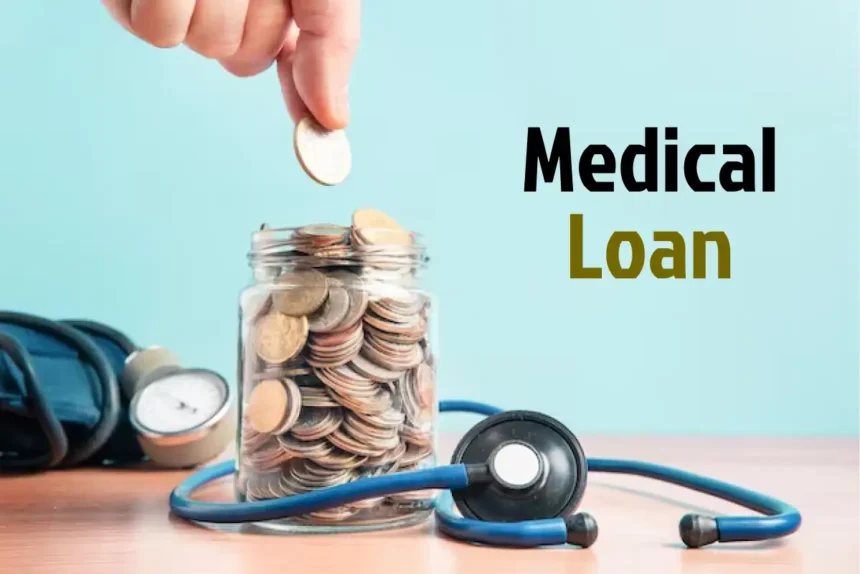What is Medical Loan ?
A medical loan is a sort of personal loan specifically designed to cover medical expenses. Medical loans, accessible from both traditional banks and online lenders, are often unsecured and not collateralized. This protects them if you default because lenders cannot seize any property from you, such as repossessing your automobile.
However, this normally requires stronger credit to qualify. Even with good credit, unsecured loans may be more expensive than secured loans. If your credit score is not ideal, you may be required to pay extra origination fees.
Advantages and Disadvantages of Medical Loan
Medical loans offer several perks and disadvantages. They give you access to both necessary and optional procedures. However, its use may incur high fees and result in financial hardship if not properly handled.
Advantages of Medical Loan
- Quick funding: You may be able to qualify for a medical loan within one or two working days.
- Medical loans may offer a lower-interest alternative to typical credit cards.
- To avoid draining your resources, consider taking out a medical loan.
- Extended payback periods: Medical loans can make health care more inexpensive by allowing you to pay for it over time rather than paying a large cost all at once.
Disadvantages of Medical Loan
- Possible higher interest rate: If you have no or poor credit, you may not be eligible for a low-interest option.
- Credit impact: Taking out a loan will affect your credit, and defaulting on the loan will harm your credit score.
- Depending on the cost of your medical procedure, taking out a loan may result in a high debt-to-income (DTI) ratio. This compares your monthly earnings against all of your loan payments, including any outstanding school or car loans.
- Limitations on use: Medical loans obtained from a health care system or provider can only be used to meet medical expenses specified in the loan terms.
How To Apply for a Medical Loan

When asking for a personal loan to cover medical expenditures, be prepared to provide basic financial details. To receive preliminary offers from several lenders, prequalify with your preferred choices. Prequalification requires a light credit draw, which has no effect on your credit score. When you choose a lender and apply for a loan, the lender will perform a hard draw on your credit.
During the application procedure for a health-care loan, you may simply be required to supply evidence of identity and income verification information.
In general, for an easier application procedure, be prepared to demonstrate the following:
- Medical expense information, which documents the details and costs of the medical treatment to be funded by the loan.
- A government-issued ID card and your Social Security number serve as proof of identity.
- A utility bill or lease agreement can serve as proof of address.
- Income proof can include current pay stubs and employer information, W-2 papers, or bank records.
- Deposit information includes the bank account and routing numbers where the funds should be deposited.
These documents will assist you in providing the information that lenders normally require to rapidly approve and handle your loan.
What to Consider When Choosing a Medical Loan
Perform a rate comparison
Various banks charge various interest rates for medical loans. Interest rate differences can be enormous and have a significant influence on your savings. As a result, it is critical to compare the interest rates of various banks and financial organisations offering medical loans. After analysing the options, choose the one that provides you with the best value.
Documentation
Make sure you understand the papers required by the bank or financial institution in order to get your loan accepted. The most common documents required will be evidence of address, such as an Aadhaar card, driver’s licence, passport, or PAN card. Bank statements, salary stubs, or income tax returns will be requested to get proof of income.
Affordable EMIs
Before applying for a medical loan, use a personal loan EMI calculator to compare rates from several banks and financial institutions. The EMI will vary depending on the loan amount, interest rate, and loan tenure.
Other charges
Banks and financial institutions frequently levy fees such as processing fees, repayment charges, pre-closure charges, dishonour charges, and penalty penalties, to name a few. So, before applying, conduct research and compare the various fees charged by different financial organisations.
Credit Score
Your credit score could affect the interest rate charged on your medical loan. With a solid credit score, you can negotiate a lower interest rate with your lender. Before applying for a loan, you should verify your credit score.
Provide valid documentation
One key factor for the delay in medical loan approval is the loan applicants’ failure to provide sufficient documentation. As a loan application, you must present legitimate address and income proofs as required by the bank.
Choose institutions that are known for their speedy loan disbursement and smooth procedures
Before applying for a personal loan for a medical emergency, ensure the bank has a track record of timely disbursement. After all, you don’t want to endure delays while dealing with a medical emergency.
FAQs
What is the difference between a medical loan and health insurance?
Health insurance provides coverage for medical expenses according to the terms of the policy, while a medical loan is a loan specifically designed to cover medical costs. Health insurance often requires copayments, deductibles, and may have coverage limitations, whereas medical loans offer a lump sum amount that needs to be repaid over time with interest.
Can anyone apply for a medical loan?
While most individuals can apply for a medical loan, eligibility criteria may vary depending on the lender. Typically, applicants need to have a steady income, a minimum credit score, and may be required to provide collateral for secured loans.
How long does it take to get approved for a medical loan?
The approval process for a medical loan can vary depending on the lender and the applicant’s financial situation. Some lenders may offer instant approval, while others may take a few days to process the application and make a decision.
Are medical loans only for elective procedures?
No, medical loans can be used to cover a wide range of medical expenses, including both elective and necessary procedures. Whether it’s for emergency surgery, dental work, or fertility treatments, medical loans provide financial assistance for various healthcare needs.
What happens if I cannot repay my medical loan?
If you’re unable to repay your medical loan, it can have serious consequences, including damage to your credit score, collection efforts by the lender, and potential legal action. It’s crucial to communicate with your lender if you’re facing financial difficulties to explore alternative repayment options and avoid defaulting on the loan.








